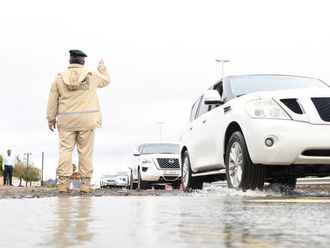I have had to fill in several application forms for visas, which have involved a lot of soul-searching. The simple act of having to write down your first name and surname had me stumped. That’s because I, like many others from South India, have a family name of which only the initial letter is used, followed by the name I am known by and then a surname.
Growing up in North India, where my father had several postings, my name with the mysterious initial always aroused curiosity. When I was asked what the ‘K’ stood for, I hemmed and hawed and tried to avoid an explanation. That’s because these family names are usually long-winded and difficult to pronounce. However, I was elated to hear a Welsh celebrity revealing the full name of his village, which was almost as long as the width of the village. So, I wasn’t the only one. Names are pretty straightforward in North India and there are no mysterious initials to tantalise.
When you are young, you don’t want to stand out in any way. Being made fun of for something you have no control over can be traumatising. So, when I had to figure out whether the initial was my surname or middle name, I was baffled. Then I read the fine print that cautioned that the name should be exactly as written in the passport. My passport had the three names written in one single line. I decided to split the names to fit in the boxes for first and middle names and surname.
Trial and error
When I went to submit the application, the person at the counter read the form as diligently as a student peruses a text book. Then I was told that I had to resubmit the form as there was a problem with it. I was told that I had to write all three names in one box and fill in NFN (no first name) in the other,
This came as a blow as the strict procedures in place meant that we had to leave behind mobile phone and handbag in the car and walk in with just the papers. Now I had to find a typing centre and fill the form again as apparently I didn’t have a first name! With no money at hand and no means of communicating, I was forced to throw myself at the mercy of a stranger on the road and ask if I could use his mobile phone. Then came the hard part. I couldn’t remember any of the numbers. After some trial and error (watched in alarm by the person whose phone I was using), I managed to get through to the sibling and ask him to come right back. He had dropped me at the centre and gone to run an errand. I knew I would be given a telling off, but time was running out. Soon I had another form filled in and rushed back to the queue. Once again I had to stand in the sweltering heat (this was May, the worst possible time of the year to stand out in the sun). By the time I got into the room, I sent up a silent prayer that this time the form would be accepted. And it was. As I emerged from the room into the scorching heat outside, I felt like doing a little jig out of sheer relief.
There was such a sense of triumph and all I had done was to successfully submit a form. I sat in the car beaming with delight. One would think I had scaled an insurmountable obstacle. Seeing my facial expression, my brother wisely said not a word.
Vanaja Rao is a freelance writer based in Hyderabad, India.










